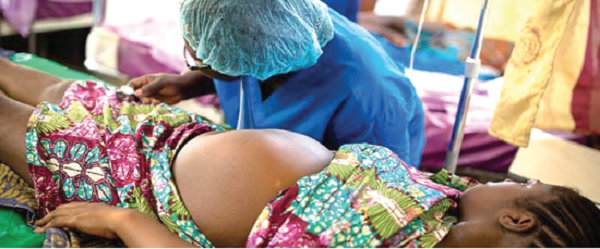
The Global Gag Rule — Impact on maternal health in Ghana
Abena, a 16-year-old Junior High School (JHS) leaver, resides at Nsaba, a community in Agona Swedru. Like many of her peers, Abena has a 17-year-old boyfriend in Senior High School (SHS).
Recently, they have been engaging in sex. While Abena is scared of an unwanted pregnancy, she and her boyfriend do not always use condoms because of the cost and according to them, “It is like eating toffee in a rubber.”
Abena’s best friend Serwaa died a couple of months ago through an unsafe abortion. Abena has thus, been thinking of going to a health facility to access a long-term family planning contraceptive but she has no money to pay for that service.
Like many others, Abena’s story is not unique. While Ghana’s progress in the areas of family planning (FP), maternal and adolescent health over the last decade must be lauded, issues related to the lack of access, inequity and poor quality of health services remain prevalent in both urban and rural communities in Ghana.
In addition to this, the threat of the Global Gag Rule coupled with the lack of political will and commitment to incorporate family planning in the National Health Insurance Scheme (NHIS) threatens not only to stale progress made under these, but also undermine Ghana’s efforts to achieve its health sustainable development goals (SDGs).
What is Global Gag Rule?
Known popularly as the Global Gag Rule, the Mexico City Policy was first introduced in 1984 at the United Nations (UN) International Conference on Population. The policy prevents foreign non-governmental organisations (NGOs) receiving United States government aid for FP from using their own funds to provide safe abortion services even if legal in their countries.
Since its enactment, the Global Gag Rule has been considered a political flashpoint in the abortion debate by Republicans and Democrats.
Previously, the rule required that as a condition for receiving US global family planning assistance, foreign NGOs had to certify that they would not perform or actively promote abortion as a method of FP with non-US funds.
As of January 23, 2017, the Trump administration revised and expanded it to cover all global health organisations that received US government funding, rather than only FP organisations.
Additionally, the revised rule also states that funding for NGOs will cease if they are known to have referred women elsewhere to receive terminations, lobby their own governments to liberalise restrictions on abortion law, campaign against their governments wanting to restrict abortions and even educate the public on the fact that they can ask for safe legal abortions.
Impact on women in Ghana
The implementation of the Global Gag Rule will pose a major barrier to women’s comprehensive reproductive health rights. This is because while Ghana has signed on to many international and regional treaties such as the UN FP2020 and the Abuja Treaty, full implementation of these commitments has been lacking.
For instance, under its FP2020 commitments, Ghana indicated its readiness to support with three million dollars annually, among others, the elimination of user fees for FP services in all public health facilities improvement of post-partum and post-abortion care; and provision of adolescent-friendly services for sexually active young people.
To date, Ghana has not been able to fully realise these commitments. For example, a July 2016 update on progress under Ghana’s FP2020 commitment revealed that the government had dedicated only about one million dollars for the purchase of FP commodities.
Also, Ghana’s status as a lower-middle-income country since 2011 resulted in some key donor organisations reducing their support to the health sector. Ghana is, thus, heavily dependent on US government funding for its health sector.
In 2015, out of approximately $178 million donor funds received by Ghana’s Ministry of Health, United States Agency for International Development (USAID) funding was $57.3 million. Of this amount, $8.5 million dollars was spent on FP and reproductive health.
While FP has a documented history of success in reducing unintended pregnancies and ultimately leading to reductions in maternal deaths, the revised Global Gag Rule is likely to affect US funding to Ghana’s health sector, especially because of Ghana’s liberal abortion laws.
Ghana risks losing out on contraceptive support and funding. There is also likely to be an upsurge in cases of unwanted/unintended pregnancies, unsafe abortions and maternal mortality.
Way Forward
To address that, the government must immediately revise the benefit package to allow for the inclusion of FP under the NHIS.
Ghana must also diversify and develop a comprehensive health financing strategy which also looks at domestic resource mobilisation as a key to generating more funds to support family planning under the NHIS.
Additionally, Ghana must intensify education of communities on the benefits of FP while addressing the issues of misconceptions and misuse of emergency contraceptives, especially among adolescent females between the ages of 15 and 19.
It is the contention of this writer that by implementing these recommendations, the issues of access and affordability that prevent young adolescents such as Abena and other women of reproductive age from accessing contraceptives will be addressed. This will ultimately reduce maternal mortality and Ghana’s heavy dependency on development partners or donors for FP commodities.
— The writer is the Programme Manager of the Alliance for Reproductive Health Rights, (A Women, Children and Adolescent Health Advocacy Group)
